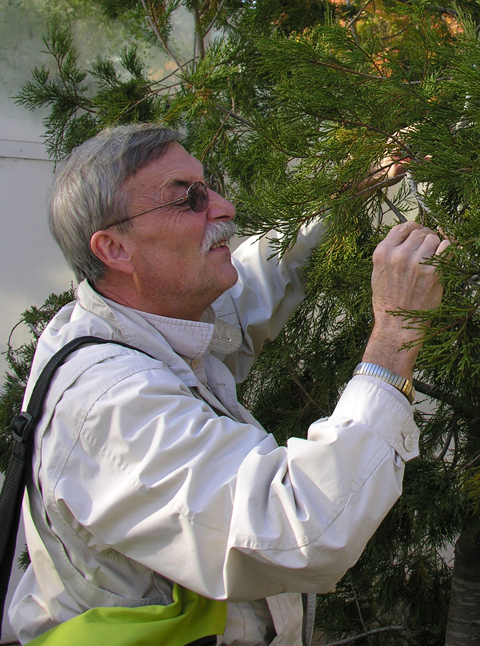Medill News Service reporter Leslie Schichtel interviewed Dr. Allan Showalter, Professor of Environmental and Plant Biology, to discuss a report from North Carolina about “Groundbreaking study: Farmers could alter plant glucose levels.”
Allan Showalter, an environmental and plant biologist at Ohio University in Athens, learned about Haigler’s research last summer at a conference.
“This is quite phenomenal work,” he said. “Now we have a roadmap to look at how you can make intelligent changes to the cellulose synthase enzyme—it gives us a glimpse at the three dimensional structure of the enzyme that makes cellulose.”
Once scientists know some of the critical amino acids that make cellulose synthase work, they can make changes, he said. They could create plants to be superior in terms of strengthening or weakening the strength of the cell walls. “You have the ability to alter the production of the cellulose molecules, which will dramatically alter the plant’s growth and properties,” Showalter said.
All plants contain cellulose and could be used for the production of biofuel from cellulosic biomass. However, the biofuel industry is most interested in using only the parts of agricultural plants that are not used as food (so as not to reduce the food supply), or better still, in using designated biofuel crops that are grown easily and not used for food at all, such as certain grass and tree species.



















Comments